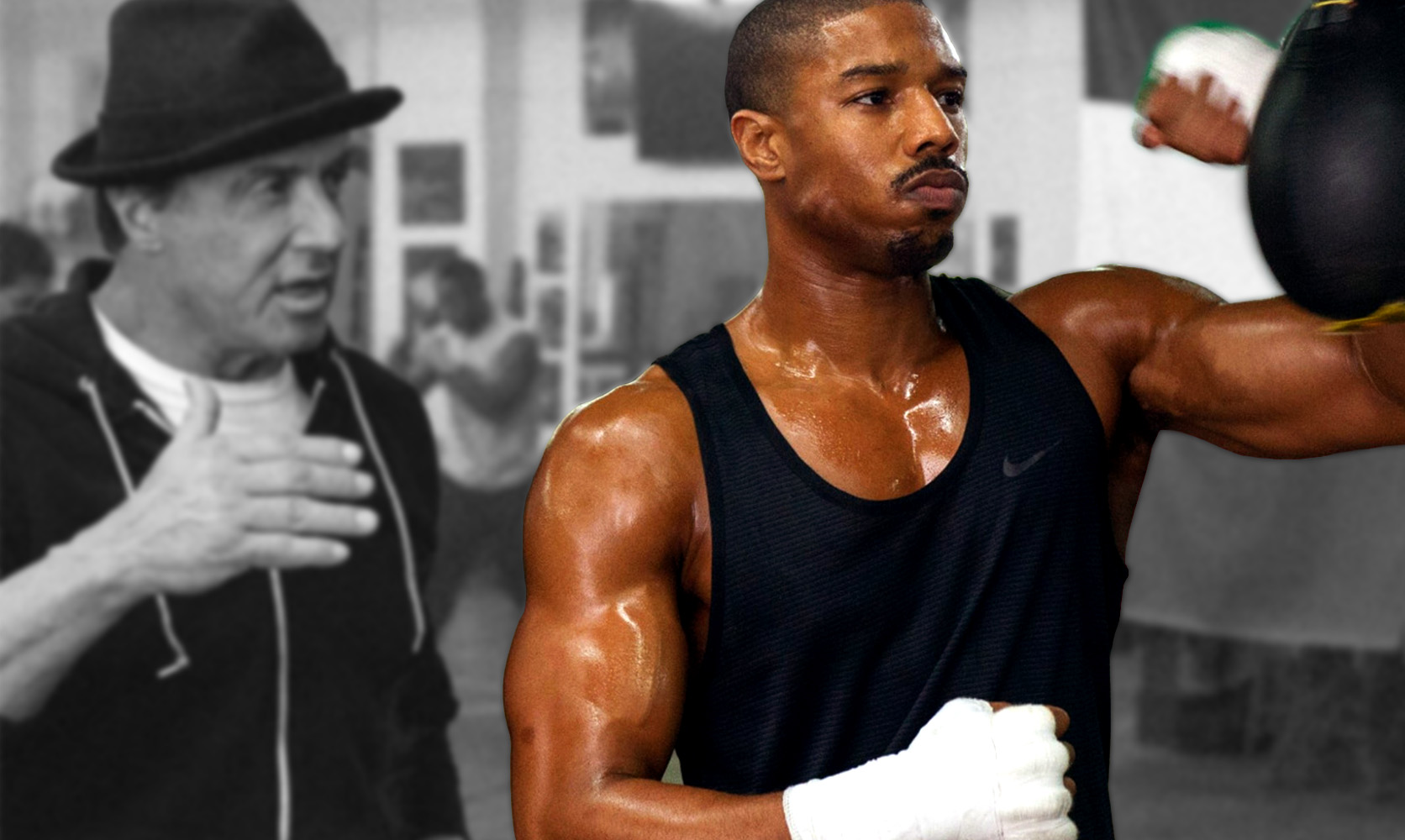Stallone Didn’t Write ‘Creed.’ And That’s Why It’s Great.
Like a lot of people born in the early-to-mid 1980s, my first email address was, in retrospect, pretty embarrassing. Until I needed to put it on resumés, you could reach me electronically at rocky1n5@hotmail.com.
In case it isn’t clear, my account was named after the two Rocky movies that I liked the best: Rocky, which won the Academy Award for Best Picture in 1976, and Rocky V, which is, frankly, a steaming pile of early-90’s vomit. It’s irrefutably horrible. (Though, interestingly, the first and fifth, or 1n5, as I’d say, were both directed by John G. Avildson). My fondness for Rocky V is proof that cinematic taste is learned, not bred. Growing up is a good thing.
But, let it also be evidence that I really, really liked the Rocky movies. Which is why I’m excited to see Creed this weekend. The spiritual sequel drops the Italian Stallion as the main character and follows Apollo Creed’s son, now trained by Rocky Balboa (much like Tommy Gunn was in Rocky V — just saying). The fact that it’s getting some of the best reviews of the entire film franchise, and that it’s a chance for Michael B. Jordan to redeem himself after this summer’s Fantastic Four debacle (hurray for underdog narratives!), only makes me more eager to see it.
Creed is the first Rocky flick not written by Stallone. It’s the first time the words coming out of the character’s mouth won’t be put there by their creator. Instead, the movie was written and directed by Fruitvale Station auteur Ryan Coogler, who, based on recent interviews, might be an even bigger Rocky fan than I am.
This is a very good thing. Not because Stallone was a bad screenwriter — though he’s no Aaron Sorkin — but because we often give creators too much deference, too much respect. While we know the characters they create are fictional, we get it in our heads that there is still really only one true path for them, and that their creators are the only ones who know what that past, present, and future is. Anything else is glorified fan fiction. But, the truth is, sometimes fans know best.
This is maybe less true in serialized television, which, like novels, requires a more sustained form of storytelling, and offers a more nuanced familiarity with the characters. Speaking of Sorkin, The West Wing without him always seemed a bit counterfeit, like listening to a really good cover band. Ditto Community without the insufferable Dan Harmon. And who knows how Harry Potter would have turned out if J.K. Rowling had handed off the series to someone else. (But, we do know it was a good thing the Potter films weren’t all directed Chris Columbus).
But in film, we see this again and again, even when directors take on existing characters. It’s really hard to think of a film franchise, if it’s directed by the same person, that doesn’t lose steam after the first two. Think Sam Raimi’s Spider-man movies, and Christopher Nolan’s Batman trilogy. Each peaked after the second instalment. And while Indiana Jones and the Last Crusade was great, the fourth film was about as good as Rocky V (with less street-boxing and more vine-swinging). Granted, there is no guarantee that handing over a film franchise will make the next movie better (it’s best to pretend the Terminator story ended after Judgement Day, for example), but when that happens, it’s usually because greed and cynicism has blurred creativity.
Not long after Creed leaves the multiplex, we’ll get another shot to see the Death of the Creator as J.J. Abrams’s The Force Awakens takes over the Star Wars universe from George Lucas. While we can’t know for sure if it will be as amazing as it looks, we can guess that it will be better than the prequels — which remain the most notorious cinematic example of a creator not knowing best. That’s the danger with giving creators too much power: with no one to reign them in, they fall victim to their own whims, or worse, their own boredom. It’s something the world of comic books has understood for decades. Can you imagine if Stan Lee still wrote Spider-Man? What creators do is often revolutionary — they teach us what we need to like right now. We learn from them, and grow. But they don’t.
It’s like any parent. You know your kids better than anyone for the first couple of decades. Then they grow up, move out, and hopefully find someone who understands them even better. After all, I’m not the same guy who came up with that Hotmail address. Thank goodness.










